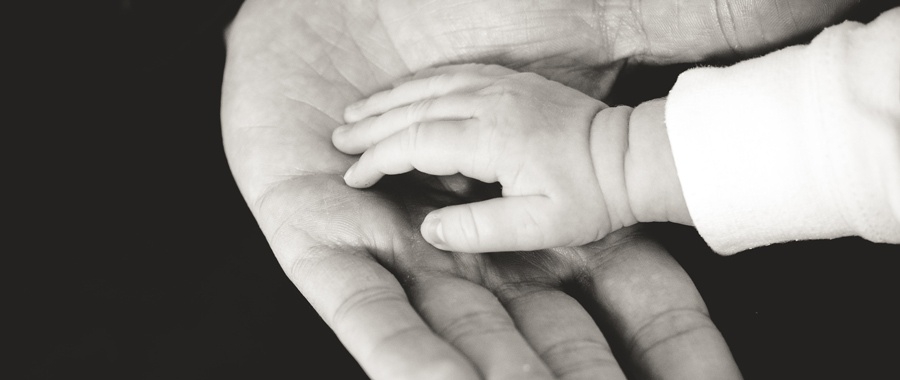The views expressed in our content reflect individual perspectives and do not represent the authoritative views of the Baha'i Faith.
Baha’u’llah, the prophet and founder of the Baha’i Faith, gave his sons sage advice – and we can each take advantage of that deep wisdom, because Baha’u’llah wrote it down for everyone.
Speaking for myself, having been raised as a Christian, I see the following advice from Baha’u’llah being just as immortal as Jesus’ profound Sermon on the Mount (Matthew 5–7) and Sermon on the Plain (Luke 6:20–49). It rises far above the usual kinds of fatherly advice to become a guide for all humanity:
Be generous in prosperity, and thankful in adversity. Be worthy of the trust of thy neighbor, and look upon him with a bright and friendly face. Be a treasure to the poor, an admonisher to the rich, an answerer to the cry of the needy, a preserver of the sanctity of thy pledge. Be fair in thy judgment, and guarded in thy speech. Be unjust to no man, and show all meekness to all men. Be as a lamp unto them that walk in darkness, a joy to the sorrowful, a sea for the thirsty, a haven for the distressed, an upholder and defender of the victim of oppression. Let integrity and uprightness distinguish all thine acts. Be a home for the stranger, a balm to the suffering, a tower of strength for the fugitive. Be eyes to the blind, and a guiding light unto the feet of the erring. Be an ornament to the countenance of truth, a crown to the brow of fidelity, a pillar of the temple of righteousness, a breath of life to the body of mankind, an ensign of the hosts of justice, a luminary above the horizon of virtue, a dew to the soil of the human heart, an ark on the ocean of knowledge, a sun in the heaven of bounty, a gem on the diadem of wisdom, a shining light in the firmament of thy generation, a fruit upon the tree of humility. We pray God to protect thee from the heat of jealousy and the cold of hatred. He verily is nigh, ready to answer.
Thus hath My tongue spoken unto one of My Branches (sons), and We have mentioned it unto such of Our loved ones as have cast away their idle fancies, and clung unto that which hath been prescribed unto them in the day whereon the Daystar of Certitude hath shone forth above the horizon of the will of God, the Lord of the worlds. – Baha’u’llah, Epistle to the Son of the Wolf
Although not named in my previous article in this series, published here at BahaiTeachings.org four years ago, Baha’u’llah’s son, to whom this remarkable advice was addressed, was named Badi’u’llah, which means “wondrous” and “unique.”
Baha’u’llah also gave additional spiritual counsel in his tablet to Ḍiya, another son:
I exhort thee, as I have exhorted one of My Branches (sons), Ḍiya’u’lláh, as named by My pen in My Preserved Tablet:
O Ḍiya! Be patient in hardship. In all thy affairs, be content. Place thy confidence in God, the Almighty. Be swift in beneficent deeds. To thy Lord be unreservedly obedient. Conceal always the faults of others. Shun ungodly desires. Tread unswervingly the path of truth.
Be thou a rain-laden cloud of bounty for all. Forgive the wrong and wayward deeds of others. Be thou firm in the Covenant and steadfast in the Cause of God. In such manner doth this Wronged One exhort you. I likewise enjoin upon you the fear of God. Be thou trustworthy and honest.
Upon thee be glory upon glory. Blessed art thou and whomsoever loves you for the sake of God. And woe betide those people who disdain you and who turn away from what hath been decreed in the Book. – Provisional translation from the original Arabic by Dr. Nosrat Mohammadhosseini, LL.D.
Baha’u’llah’s revealed the tablet to his son Badi’u’llah at least three times, for increasingly wider audiences: the first time, he revealed this tablet to Badi’u’llah as personal advice, from father to son; then, for the second time, Baha’u’llah re-revealed it in a separate tablet to the Persian poet Andalib, primarily for the Baha’is of Persia; and then, for the third and final time, Baha’u’llah included the tablet to Badi’u’llah in his final book, Epistle to the Son of the Wolf, which, as an open and public letter, was for the benefit of the entire world, as a touchstone and guide to ethical and moral conduct for individuals anywhere and everywhere.
In other words, the third time Baha’u’llah revealed his tablet to Badi’u’llah was for the entire world. (My thanks to Mr. Gamal Hassan for this insight.)
Of Baha’u’llah’s sons, his eldest son, Abdu’l-Baha, certainly lived up to Baha’u’llah’s advice, as explicitly noted by another Baha’i historian, Lady Blomfield:
Always did Abdu’l-Baha obey this Tablet of Baha’u’llah: “Be generous in prosperity, and thankful in adversity …. Abdu’l-Baha lived forty years of His sanctified life in the prison fortress town, obeying this holy Tablet, not only in the letter but in the spirit. – Lady Blomfield, The Chosen Highway

Those marvelous words to live by serve as a moral compass, as an ethical guide, as an exhortation to moral excellence, as an invitation to live a virtuous life, as part of the Word of God to memorize, to internalize, and to manifest in one’s life.
Living up to Baha’u’llah’s expectations, and abiding by his exhortations and admonitions, would, I hope, make Baha’u’llah proud of each and every one of us, to the extent that we can abide, even if only some of the time, by these great teachings, and thereby impart joy to the heart of Baha’u’llah and Abdu’l-Baha, and to the Concourse on high (a Baha’i term for the heavenly host, who gaze upon this world from their realms above and beyond), mentioned by Baha’u’llah in this passage in the merits of a goodly character:
A good character is, verily, the best mantle for men from God. With it He adorneth the temples of His loved ones. By My life! The light of a good character surpasseth the light of the sun and the radiance thereof. Whoso attaineth unto it is accounted as a jewel among men. The glory and the upliftment of the world must needs depend upon it. A goodly character is a means whereby men are guided to the Straight Path and are led to the Great Announcement. Well is it with him who is adorned with the saintly attributes and character of the Concourse on High. – Baha’u’llah, Tablets of Baha’u’llah
















Comments
Sign in or create an account
Continue with Googleor